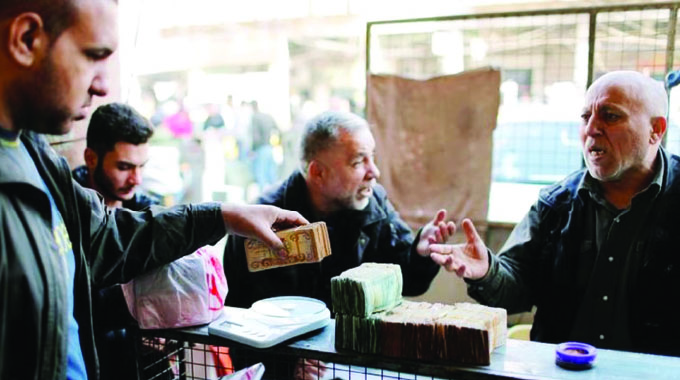The Iraqi government has banned using the US dollar for personal and business transactions to control a fluctuating black market exchange rate and boost the use of dinar.
Dollar transactions went underground on May 15 and exchange offices, fearing arrest by undercover agents, were selling the currency only to trusted clients at the black market rate, The National reported.
The move is part of the growing ‘de-dollarisation’ trend and an overall decline in Washington’s economic influence.
In a statement, the interior ministry said: “The dinar is the national currency in Iraq. Your commitment to transact in it instead of foreign currencies boosts the country’s sovereignty and economy.”
The ministry’s Crime Directorate forces are in markets across Baghdad and other cities asking traders to sign a pledge to transact only in dinar, Brig General Hussein Al Tamimi told The National.
The ministry added that transaction in other currencies “is a violation punishable by law” and threatened to “hold accountable anyone who attempts to undermine the Iraqi dinar and the economy”.
“If the violator repeats it, he will face an imprisonment penalty of up to one year plus a one-million Iraqi dinar financial fine. In case of a third violation, that penalty will be doubled and we will have the business licence turned,” Al Tamimi added.
“The widespread campaign aims at protecting the dinar,” said Al Tamimi, who heads the directorate’s operations department.
Dollars are already in shortage in the official markets due to recently imposed US measures to control the currency’s movement inside Iraq. The US policy has triggered a debate inside Iraq about the benefits of de-dollarisation despite the Mohamed Shia al-Sudani moving swiftly to contain the financial fallout.
Iraqi MP and member of the Finance Committee in Iraq’s Council of Representatives, Hussein Mouanes, told The Cradle in an exclusive interview earlier this month that “Iraq has been and continues to be a slave to the US dollar every country’s economic strength depends on the strength of its currency”.
“It is clear that Iraq is economically dominated by the US, and our government does not truly control or have access to its own money … We believe that it is crucial to move away from the hegemony of the dollar, especially as it has become a tool to impose sanctions on countries. It is time for Iraq to rely on its local currency,” he added.
The dinar plummeted after the 1991 Gulf War, the harsh UN economic sanctions and the 2003 US-led invasion. Consequently, Iraqis started using the dollar in a wide range of dealings—from wholesale trading to retail purchases. Iraqi has been trying to stop a currency crisis for the last six months leading to an increase in the prices of goods and sparked street protests.
Since November, the dinar has become more volatile after the US’s tightening of procedures for international transfer with some blaming Washington for the dinar’s problem.
On the other hand, America has complained that the dollar is being funnelled to Iran, Syria, and Lebanon through the foreign currency auction run by the Central Bank of Iraq.
The Federal Reserve Bank of New York has applied strict measures on requests for international transactions from Iraq, rejecting many and delaying others, leading to an increased demand for the dollar in Iraq.
Source: The Herald


